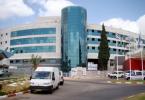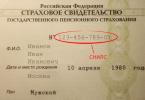Since 2013, people who wish to move to the territory of the Russian Federation for the purpose of permanent residence and obtaining citizenship can take part in the state program for the resettlement of compatriots.
Such a program makes it possible to make the resettlement procedure more comfortable for certain categories of citizens, especially since the state itself is interested in moving compatriots and attracting a flow of able-bodied population.
Legislative regulation of the issue: latest changes and innovations for 2019
The issues of resettlement of compatriots are regulated by the Law “On Citizenship of the Russian Federation”, the State Program for Assistance in the Voluntary Resettlement of Compatriots Living Abroad in the Russian Federation (hereinafter referred to as the Program) and other by-laws.
The program was introduced in 2006 with a validity period until 2012 and immediately showed its effectiveness. In the area of legislative acts regulating resettlement issues, many changes have been made over the years. Later, the term of the Program was extended: in 2013 it received a new edition, and its validity became indefinite.
In 2018, the implementation of the Program continued, as in previous years, but with some changes.
Who can participate in this state program
Participate both citizens of other countries and stateless persons, as well as citizens of the Russian Federation who permanently reside abroad and have Russian citizenship, can participate in the Program.
The purpose of the Program initially is the resettlement of a certain circle of persons:
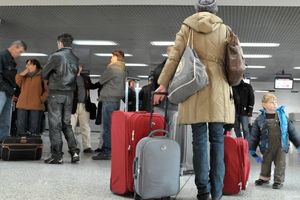
Selection criteria and requirements for candidates
In addition to being related to a certain category of citizens, a potential participant in the Program must also meet these requirements:
- The candidate must be of legal age and legal capacity to work in the Russian Federation;
- The level of proficiency in oral and written Russian should be such that the participant will quickly adapt to the country;
- Have work experience and a qualified education that will provide the participant with a job in Russia.
- A potential migrant, not earlier, not at the time of applying, should not be a member of terrorist, extremist and other organizations whose activities are prohibited on the territory of the Russian Federation.
If, within the framework of the Program, the candidate will need to apply for a residence permit, he must meet in advance all the conditions that will allow him to receive it. The migrant must not be convicted or subject to deportation from the territory of the Russian Federation. In addition, the candidate must meet the conditions of regional resettlement programs, so you need to familiarize yourself with them in advance.
Requirements and conditions are presented in order to facilitate the resettlement of those people who were brought up in the traditions of Russian culture and are ready, because of this, to quickly join the social ties of society. 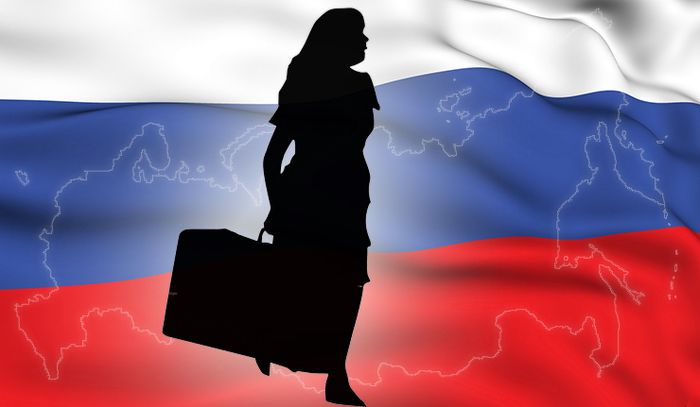
What documents need to be collected
A potential participant must submit completed application form and collect a package of documents, which includes:
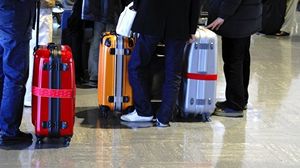
If a compatriot lives in the Russian Federation, then he must additionally provide original documents that confirm their right to temporary or permanent residence, documents on family status (marriage or divorce) and identity documents.
When changing in previous years the last name, first name or patronymic of the participant or relatives who move with him, you must submit the appropriate certificates from the civil registration authorities. It should be borne in mind that the writing of such personal data of a person should be the same in all documents.
List of benefits
Compatriots participating in the program and their relatives moving with him are entitled to receive social assistance and state support in accordance with the region of resettlement.
 Participants are provided reimbursement of expenses from the budget for moving in the region chosen for residence. The fees charged by the consulate, visa fees and funds spent on the transportation of own property and the payment of various state duties are compensated. For subsequent reimbursement, you should keep the contract with the carrier and papers confirming payment for its services. If the services are provided by an international company, a bill of lading with customs stamps and a cargo declaration will be required.
Participants are provided reimbursement of expenses from the budget for moving in the region chosen for residence. The fees charged by the consulate, visa fees and funds spent on the transportation of own property and the payment of various state duties are compensated. For subsequent reimbursement, you should keep the contract with the carrier and papers confirming payment for its services. If the services are provided by an international company, a bill of lading with customs stamps and a cargo declaration will be required.
If the participant has become registered with the migration authority and has been in his possession for six months or more motor transport, he has the right, within 18 months after the resettlement, to transport this means without paying fees and charges at customs. This benefit applies to those persons who have received a participation certificate in foreign countries.
The participant of the Program and the relatives of the resettled person who arrived within its framework have the right get RVP outside quotas, residence permit and citizenship in a simplified manner. Also, from the pluses it should be noted that the migrant no need to take comprehensive exams to get them - it saves a lot of time and money.
As part of the Program, the participant is provided in support payments up to 240 thousand rubles, which can be spent on solving life and domestic issues, contributing to your business, purchasing or renting a home. Their size depends directly on the region of resettlement, detailed information on this matter can be found on the websites of the regions.
Of the minuses of the resettlement program, it should be noted that the participant is obliged to live and work only in the territory of his region before obtaining citizenship.
It should be noted that the funds are also paid to the family members of the migrant, 120,000 rubles for each relative who moved to the Russian Federation. Lift cards are issued in two stages. The first part of the funds is paid immediately after the resettlement, and the second - a year and a half after the settlement in a new place.
In the event that a family that has moved to the territory of the Russian Federation does not have a source of income, then it is entitled to a separate cash payment in the amount of one living wage.
In which regions of the Russian Federation is it possible to resettle
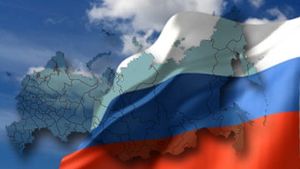 A compatriot within the framework of the Program can choose a territory for resettlement in the Russian Federation - a subject of the federation or part of it. At the same time, there are two categories of them: priority settlement and those that do not belong to priority territories. Many regions of Russia today have a shortage of qualified workers and need new personnel. Territories that are strategically significant for the state are considered priorities; they are determined and changed by the Government of the Russian Federation.
A compatriot within the framework of the Program can choose a territory for resettlement in the Russian Federation - a subject of the federation or part of it. At the same time, there are two categories of them: priority settlement and those that do not belong to priority territories. Many regions of Russia today have a shortage of qualified workers and need new personnel. Territories that are strategically significant for the state are considered priorities; they are determined and changed by the Government of the Russian Federation.
Since 2016, 47 regions have been able to accept participants in the Program, but most of all, immigrants are expected in the regions of Transbaikalia, Kamchatka, Altai, Khabarovsk and Primorsky Territories, Amur, Magadan and Irkutsk Regions, as well as in Sakhalin and in the Jewish District.
In 2019, the number of regions ready to accept new residents is 57 subjects.
Settlers primarily seek to move to large cities, St. Petersburg and Moscow. However, it should be borne in mind that the maximum level of state support can be expected only when resettling in priority regions. See the list of all regions on official websites for the implementation of the Program.
Step-by-step instructions for the resettlement procedure
If a candidate living abroad has collected a ready-made package of documents and completed an application in accordance with the approved form, he can submit it personally to the authorized body of the Russian Federation within the territory of their country. Such bodies may be representative offices of the Migration Department of the Ministry of Internal Affairs of the Russian Federation or groups for the implementation of the Program at consulates and departments of Russian diplomatic missions in foreign countries.
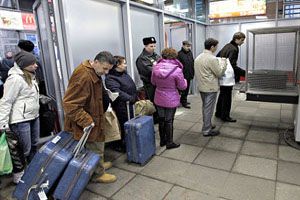 Living in the territory of the Russian state, in order to participate in the Program, it is necessary to submit documents according to the territorial principle to the departments of the Main Directorate for the Ministry of Internal Affairs of the Russian Federation.
Living in the territory of the Russian state, in order to participate in the Program, it is necessary to submit documents according to the territorial principle to the departments of the Main Directorate for the Ministry of Internal Affairs of the Russian Federation.
Before submitting an application, please note that documents drawn up in a foreign language must be translated into Russian. In this case, the translation and translator's marks must be notarized. If copies of documents issued in foreign countries are submitted, the originals must be legalized in accordance with the established procedure, if these issues are not regulated by an international treaty.
After the application is submitted, one should wait until it is agreed with the executive authorities of the region in which the resettlement is planned and with state authorities.
Various departments should check that the potential participant does not have circumstances that may prevent him from entering Russia. If a person lives in the Russian Federation, the absence of reasons for the termination of temporary or permanent residence (TRP, residence permit) is checked.
After considering the application, the territorial body for migration issues of the subject of the Russian Federation that participates in the regional program, decides and issues or denies issuance of a certificate of participation in the Program to the candidate.
It should be remembered that the issued decision can be canceled in cases where a compatriot violates the norms of migration legislation or it is found that his stay in the Russian Federation is undesirable, a decision is made to expel him from the country, entry into the Russian Federation is prohibited or the participant no longer meets the conditions of the regional program.
Certificate is provided within 60 days after receiving an application from a compatriot with a full package of documents. To receive it, you must personally appear at the authorized body. The document is valid for three years after submission. If this period has expired, then the participant loses his status, and his relatives - the status of family members. That is, the participant needs to have time to obtain citizenship of the Russian Federation during this time.
 Before moving, you should make a sufficient number of copies of documents and photographs in advance to obtain a temporary residence permit and citizenship, so as not to waste a lot of time later.
Before moving, you should make a sufficient number of copies of documents and photographs in advance to obtain a temporary residence permit and citizenship, so as not to waste a lot of time later.
When entering the territory of the Russian Federation, you should carefully consider to fill out the migration card. When crossing the border on a foreign passport, it is not necessary to enter the middle name on the card, if it is not in the passport, the purpose of the visit must be set private.
At the Migration Department of the Ministry of Internal Affairs you can get a memo with a list of documents required for RWP. It is necessary to note the necessary for yourself: an application, a photo, a notarized translation of a passport, a copy of the certificate of a Program participant, papers confirming the payment of a fee in the amount of 1,600 rubles (you can get a refund for it), a migration card and data on registration at the place of stay. In addition, you need to go through a commission in medical institutions to obtain certificates and certificates of the absence of HIV, drug addiction and other infectious diseases according to the list. These certificates can be provided both when submitting documents for the TRP, and within a month after it.
After granting the TRP, it is not necessary to obtain a residence permit: the participant can immediately apply for citizenship, the issue of granting it will be considered within three months. This is a significant plus, because in the general procedure one would still have to obtain a residence permit and apply for citizenship only after a period of time specified by law.
Features of resettlement from Ukraine, Kazakhstan, Moldova, Belarus and other states
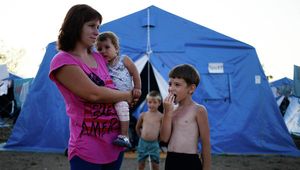 It should be remembered that citizens of some countries (for example, Ukraine, Kazakhstan), who arrived in the Russian Federation in a visa-free regime, can stay in the territory for up to 30 or 90 days without being registered at the place of stay with the local migration authority. But you should know that in order to obtain a TRP, such accounting is necessary even for this category of citizens.
It should be remembered that citizens of some countries (for example, Ukraine, Kazakhstan), who arrived in the Russian Federation in a visa-free regime, can stay in the territory for up to 30 or 90 days without being registered at the place of stay with the local migration authority. But you should know that in order to obtain a TRP, such accounting is necessary even for this category of citizens.
It is necessary to take into account the features for the resettlement of compatriots from visa and visa-free countries, because in the field of migration policy there can be different relations between foreign states and the Russian Federation. For example, citizens of Belarus do not need to fill out a migration card, therefore, it will not be required to submit it to the migration authority, and citizens of states with which the Russian Federation maintains a visa regime will need a visa.
For clarification of all questions, you can contact the consular offices of the Russian Federation in foreign states and other authorized bodies.
Solving the issue of employment and housing
According to legal acts, migrants after moving have the right to work and receive education on the territory of the Russian Federation.
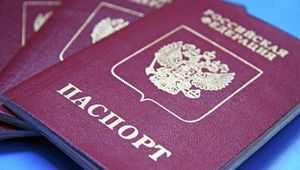 If the resettled person does not have relatives at the place of resettlement, he should inquire in advance about the presence in the region temporary accommodation centers, where you can stay for a moderate fee and even get registered at the place for the duration of your stay. It will be needed for the subsequent submission of documents for the RVP.
If the resettled person does not have relatives at the place of resettlement, he should inquire in advance about the presence in the region temporary accommodation centers, where you can stay for a moderate fee and even get registered at the place for the duration of your stay. It will be needed for the subsequent submission of documents for the RVP.
Having a certificate of a Program participant in hand, a migrant and a member of his family, in accordance with labor legislation, have the right to find a job on the same conditions as a citizen of the Russian Federation. This is a significant plus, because you can get a job without a work permit and registration of temporary residence, and the employer does not need to apply to the migration authorities for a permit for the employment of foreign labor.
However, to date, some employers have not heard of such a Program, so before applying, you should convey to them all information about your rights.
Also, on the official websites of the regions, you can find a list of vacancies within the framework of the Program, which you can get a job on your own, and the requirements for the employee. But you need to remember that the issue of moving can take a long time, during which vacancies may lose their relevance.
In addition, you should always remember that the issues of housing, life, employment of all family members and education of children should be clarified as much as possible in advance, collecting all the information for fallback solutions.
See the following video about the resettlement program:

